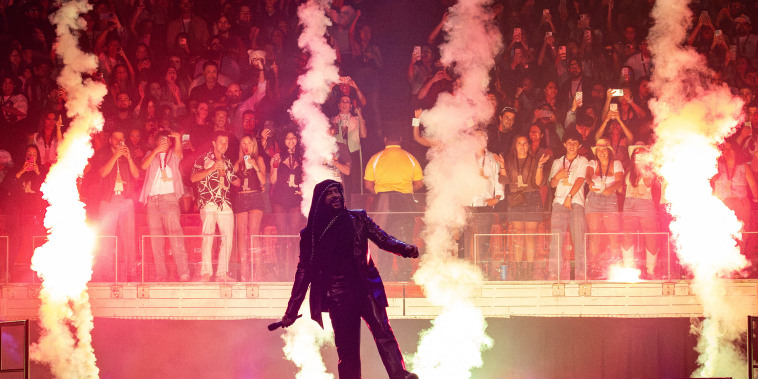
The Mysterious Trend: Major Artists Pulling the Plug on Shows and Tours
In a world where the entertainment industry plays a significant role in shaping cultural experiences, the abrupt cancellation of shows and tours by major artists can cause ripples of dismay among fans and industry professionals alike. The recent trend of high-profile cancellations has left many wondering about the reasons behind these sudden decisions and their impact on the artists themselves, as well as the broader music landscape.
One key factor contributing to the surge in concert cancellations is the growing concern for mental health and wellness among artists. In the fast-paced and demanding world of music tours, artists often find themselves navigating intense schedules, lack of privacy, and the pressure to continuously deliver top-notch performances. These stressors can take a toll on their mental and physical well-being, leading some artists to prioritize self-care and seek respite from the relentless touring lifestyle.
Additionally, external factors such as logistical challenges, unforeseen personal emergencies, and global events like the COVID-19 pandemic can also prompt artists to cancel shows and tours at short notice. The pandemic, in particular, has disrupted the music industry on a massive scale, forcing artists to reevaluate their touring plans in light of health and safety concerns, travel restrictions, and uncertain economic conditions.
Another significant aspect to consider is the evolving nature of audience expectations and artist-fan dynamics in the digital age. With social media providing a direct line of communication between artists and their followers, artists are under increasing pressure to maintain transparency and authenticity in their interactions. This shift towards more intimate and personalized connections with fans may influence artists’ decisions to cancel shows or tours in order to address personal or professional challenges without compromising their credibility.
Furthermore, the rise of streaming platforms and virtual concert experiences has created alternative avenues for artists to engage with their audience, offering new possibilities for reaching a wider fan base while circumventing the limitations of traditional live performances. These technological advancements have given artists more flexibility in how they choose to share their music and connect with fans, potentially reshaping the dynamics of the live music industry in the long run.
Despite the disruptions caused by show cancellations, it is essential to acknowledge and respect the decisions made by artists to prioritize their well-being and artistic integrity. By fostering a culture of understanding and support within the music community, we can create a more sustainable and inclusive environment that values the health and creative autonomy of artists above all else. As audiences continue to grapple with the uncertainties and challenges of the current music landscape, it is crucial to approach these disruptions with empathy and mindfulness, recognizing the complex interplay of personal, professional, and societal factors at play.
